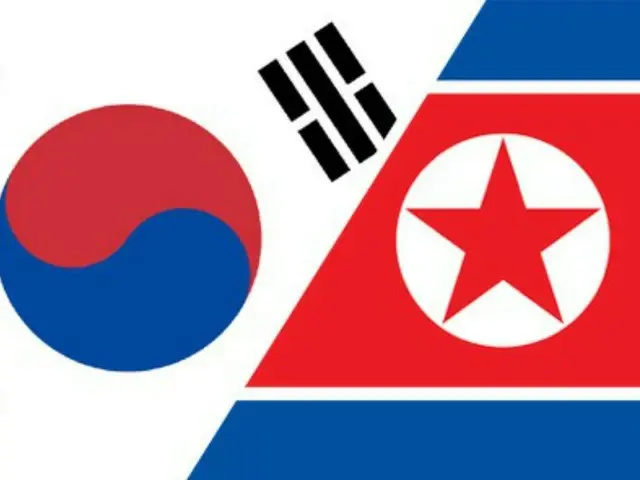The number of people who answered "I will participate in the war" has reportedly dropped by 8.8 points over the past 10 years. Meanwhile, North Korean media reported on the 15th that more than 1.4 million young people in North Korea have either enlisted in the military or are planning to enlist in the country.
They claimed they had volunteered to return to the military. North Korea's state-run Korean Central News Agency said the young men were determined to fight "a sacred war to destroy the enemy with the weapons of the revolution." South Korean Joint Chiefs of Staff Chairman Kim Myoung-soo said on the 10th
On the other hand, in a contribution to a foreign affairs magazine on the 7th (local time), a US think tank expert said, "There is a possibility that war will break out on the Korean Peninsula.
"The tension between the two Koreas is at its highest since the Korean War in 1950," he said. On the 15th, North Korea blew up parts of the road and railway that connects to South Korea.
In response to the explosion, South Korean troops responded by firing in the area south of the military demarcation line between North and South Korea, creating a tense situation that could lead to a military conflict between the two Koreas.
On the 16th, Rep. Hwang Hee, a member of the National Defense Committee of the National Assembly of Korea, released the results of the "2023 National Security Awareness Survey" conducted by the National Defense University. According to the survey, "In the unlikely event that war breaks out on the Korean Peninsula,
In response to the question, "What would you do if a war broke out?", 13.9% of people answered "I would join the battle." This percentage of people answered "I would join the battle." This is a significant drop from 2014 (22.7%) and 2020 (20.9%).
On the other hand, 48.2% of respondents said they would "support the military from the rear, although they would not be able to directly participate in the fighting," while 27.4% said they would "evacuate to a place with less danger for the time being."
Other responses included "I'm going abroad" (7.3%) and "I'm going abroad" (3.2%). Rep. Hwang, who released the results, said, "Recently, military tensions between the North and South have been rising, and people's anxiety and worries are growing.
The survey was conducted in June last year among 1,200 South Korean men and women aged 18 to 75 (interview survey), 100 defense and security experts, and 1,200 South Korean nationals aged 18 to 75 (interview survey).
The survey was conducted among 10,000 people (online survey). In January of this year, North Korean leader Kim Jung Eun declared South Korea to be "our main enemy." "If they try to threaten our sovereignty and security,
He emphasized that "we will not hesitate to completely burn down the country," and said that "we will not unilaterally launch an armed invasion of South Korea, but we have no intention of avoiding war."
Robert Manning, an advanced research fellow at the US think tank Stimson Center, wrote in the foreign policy journal Foreign Policy on the 7th of this month:
In a contribution to the National Security Policy, he said the possibility of war breaking out on the Korean peninsula is now higher than it has been since the Korean War in 1950. "North Korea is unlikely to take any dramatic action in the next six to 18 months," he said.
Meanwhile, during a parliamentary audit by the National Assembly's Defense Committee on the 10th, South Korean Chairman of the Joint Chiefs of Staff Kim Myoung-soo was asked by opposition lawmakers, "We are raising the possibility of a war with North Korea."
When asked, "How do you perceive the possibility of war?" he replied, "I know that there are some opinions that war is highly likely," and added, "Based on our intelligence assessment, our preparations are solid."
"Therefore, the possibility of a war by North Korea is not high," he said. Shin Won-sik, the head of the National Security Advisory Office of the South Korean President, also said on the 13th, "North Korea cannot start a war unless it decides to commit suicide.
"It will not be possible for the president to be involved in the security issue," he said. The South Korean newspaper Hankyoreh reported that "strong criticism has been raised" in response to this statement. The newspaper explained the reason for this as "the president's highest-ranking security adviser has
The assertion that "war will not be possible" sends a serious message in itself, and if it provokes North Korean leader Kim Jong Un, it could raise the red line, causing North Korea to launch a localized provocation.
On the 17th, North Korea's Korean Central News Agency reported that it had amended its constitution to state that South Korea is a "complete enemy."
The North Korean government also blew up parts of roads and railways connecting it to South Korea, but the agency said the explosions were "a necessary and logical departure from a serious security environment that is heading toward an unpredictable border war."
North Korea's state-run Korean Central News Agency reported on the 16th that about 1.4 million young people, including students and Youth League officials, have volunteered to join or be discharged from the military.
He has stated his determination to fight a "sacred war to destroy the enemy with the weapons of the revolution," and by using the word "war," he has emphasized his confrontational stance toward South Korea, creating a tense atmosphere on the Korean Peninsula.
2024/10/18 13:23 KST
Copyrights(C)wowkorea.jp 5

